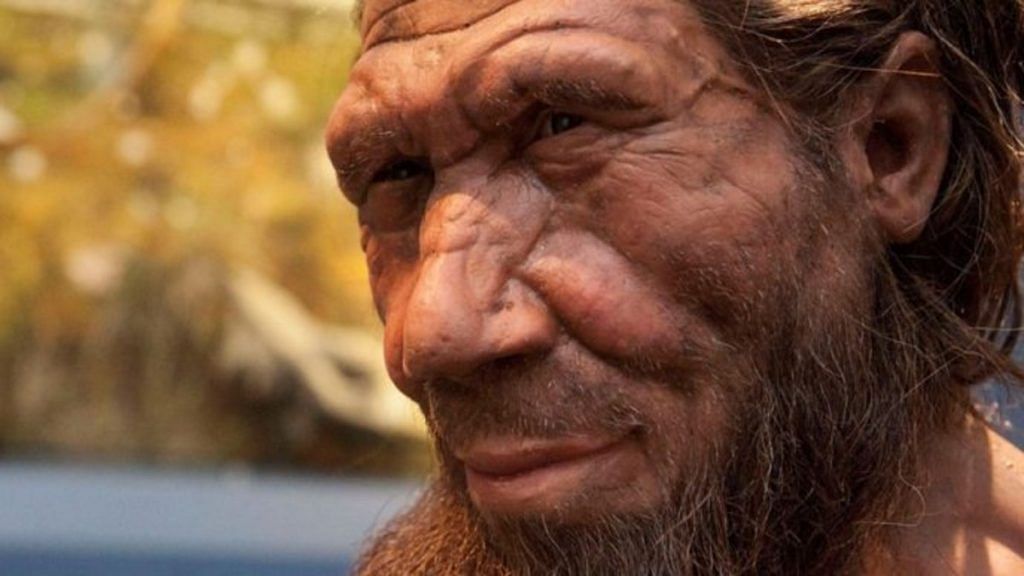New Delhi: An estimated 50 per cent of the Indian population is less susceptible to severe Covid-19, and it’s probably because Neanderthals and modern humans got naughty with each other tens of thousands of years ago. Or so claims a group of researchers from Japan and Germany.
According to researchers behind a study published in PNAS last week, nearly half the Indian population has inherited a 75,000-character-long DNA sequence from Neanderthals that is believed to reduce the risk of severe disease due to Covid-19.
Conducted by researchers from Okinawa Institute of Science and Technology Graduate University (OIST) in Japan and the Max Planck Institute for Evolutionary Biology in Germany, the study sought to examine a gene variant that was linked to a 22 per cent reduced risk of severe Covid-19 and ICU admissions in another study conducted in December. It found the variant identical to one found in three different Neanderthal specimens.
This is not the first piece of research to find a link between Neanderthals, a species of ancient humans that became extinct 40,000 years ago, and Covid susceptibility in modern human beings.
In July last year, a study by researchers at the Max Planck Institute for Evolutionary Anthropology found that a piece of the human genome that increases the risk of severe illness from Covid-19 was inherited from Neanderthals over 60,000 years ago. An estimated 30 per cent of South Asians are believed to carry this gene sequence.
“It’s quite amazing that despite Neanderthals becoming extinct around 40,000 years ago, their immune system still influences us in both positive and negative ways today,” Svante Pääbo of OIST said in a statement released with the study.
Hugo Zeberg, one of the authors of the study, told ThePrint that nearly 50 per cent of Indians carry this DNA sequence. The frequency of this gene variant is 49.5 per cent in Gujaratis, and 48 per cent in the Telugu population, he added.
Also read: Neanderthals were no brutes. They were precise workers capable of caring for the weak
Through thousands of years
Neanderthals evolved in western Eurasia about half a million years ago. However, their genes continue to have a biological impact on the physiology of modern humans, since they mingled with human populations during the last tens of thousands of years of their existence.
The Neanderthals adapted to environments outside Africa over the hundreds of thousands of years they lived there. During this time, they also likely adapted to infectious diseases.
Interbreeding between Neanderthals and modern humans — who are believed to trace their roots to Africa — is said to have led to the exposure of each species to novel viruses, and exchange of adaptive gene variants that provided resistance against these viruses.
For example, two gene variants that decrease the susceptibility to Helicobacter pylori — infectious bacteria that cause stomach inflammation and some types of stomach cancer — are believed to have been inherited from Neanderthals.
The aforementioned July 2020 study said a gene variant in a region on chromosome 3, inherited from the Neanderthals, increased the risk of becoming critically ill upon infection with SARS-CoV-2, the virus that causes Covid-19.
Chromosomes are thread-like structures located inside the nucleus of cells. Humans have 23 pairs of chromosomes. Each chromosome is made of protein and a single molecule of deoxyribonucleic acid (DNA).
DNA contains the specific instructions or genetic code that makes each individual unique.
In December, a team of researchers from the University of Edinburgh found that gene variants located on chromosome 12 reduce the risk that an individual will require intensive care after infection by about 22 per cent.
The study published in PNAS last week shows that this variant is almost identical to those found in three Neanderthals — a 50,000-year-old Neanderthal from Croatia, and two from southern Siberia, one dating back 70,000 years and the other, 120,000 years.
Chromosome 12 spans almost 134 million DNA building blocks (base pairs) and represents between 4 and 4.5 per cent of the total DNA in cells.
The gene variant sequence mentioned in this paper is about 75,000 base pairs.
Three genes in the sequence of 75,000 base pairs code for enzymes that are produced upon viral infection and, in turn, activate other enzymes that degrade viral genomes in infected cells. Simply put, three genes help the body kickstart the biological process that attacks the virus when it infects cells.
“It seems that the enzymes encoded by the Neanderthal variant are more efficient, reducing the chance of severe consequences to SARS-CoV-2 infections,” Pääbo said.
Also read: The Neanderthal gift that’s serving us humans well
